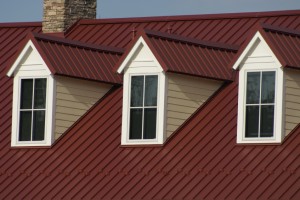Metal Roofs Are Noisy, Too Heavy for My Home & Other Bizarre Metal Roofing Myths
May 31, 2023Metal Roofs Are Noisy, Too Heavy for My Home & Other Bizarre Metal Roofing Myths
More so than the cost, perhaps the most significant barrier preventing homeowners from having metal roofs installed are the myths surrounding them. While these theories are completely untrue, many of them might make sense to those who don’t fully understand how metal roofs work. The most common metal roofing misconceptions, such as metal roofs being unbearably cold in the winter, are not only untrue, but the reality is completely the opposite.
Myth: Metal Roofs Are Too Noisy, Especially in the Rain
One of the most frequent concerns about metal roofing is whether or not they’re noisy in the rain. This largely comes from the misconception about how metal roofs are constructed—which is the incorrect view that it’s nothing more than a sheet of metal over a house.
Metal roofs are typically no louder than traditional roofs. They are usually installed over an already existing surface and also contain an amount of insulation for the cold. This cuts down on the sound vibrations, which would otherwise travel throughout the roof. Most homes also have attic space directly underneath the roof. This, too, contributes to cutting down on the sound from the rain.
Metal roofs sound just like traditional roofs in the rain—virtually silent in light showers—and they may expel small, relatively unnoticeable thuds during heavier storms.
Myth: Metal Roofs Increase the Chance for Lightning to Hit the House
This one’s an understandable concern as metal does conduct electricity. It’s important to know, however, that conduction and attraction aren’t the same.
Lightning has the same chance of hitting a roof as it does anything else—the difference is what happens after it’s struck. This is where metal roofs are actually safer since there’s no risk of the material combusting. Metal roofs do not increase any chance of lightning strike or harm to the house on which they’re installed.
Myth: Metal Roofs Dent Easily, Especially During Hail Storms
The metal in roofing material is very durable and strong. This means it’s unlikely to dent or warp under any normal circumstances, including hail. If the roof in question is textured, it actually lessens the likelihood of it being dented since hailstones and other objects don’t have a smooth surface to bounce.
Normal hailstorms pose no risk to the surface of a metal roof. It is true that unusually large hailstones might dent the metal, but then again, large hailstones can damage most surfaces, including wood and asphalt roofing.
Myth: Metal Roofs Are Colder in the Winter, Making it Harder to Heat the House
This is another popular misconception about metal roofs, which would be true if they consisted of little more than a sheet of metal over an empty building. Any properly built home has insulation built into the roof, and this is what keeps the house warm.
The nature of metal actually allows for heat to remain inside the house much easier. Also, if the roof has a darker color, it will absorb more light and will be warmer as a result. In fact, when you finally make the choice to switch from asphalt to metal roofing, you have to take into account the color of your metal roof.
Myth: Metal Roofs Are Too Heavy for My Home
Most metal roofs do not comprise giant sheets of heavy material. Just like any other construction or renovation job, measurements are taken to ensure the ideal amount of material necessary to complete the project. In fact, the actual weight of the metal has very little difference when compared to alternative roof materials.
Many of these myths are understandable from an uninformed perspective. However, these popular misconceptions are wrong. Metal roofing is not only a safe and energy-efficient choice; it’s also the smarter option due to the number of benefits a it can provide to a home, including structural integrity, energy efficiency and longevity.


